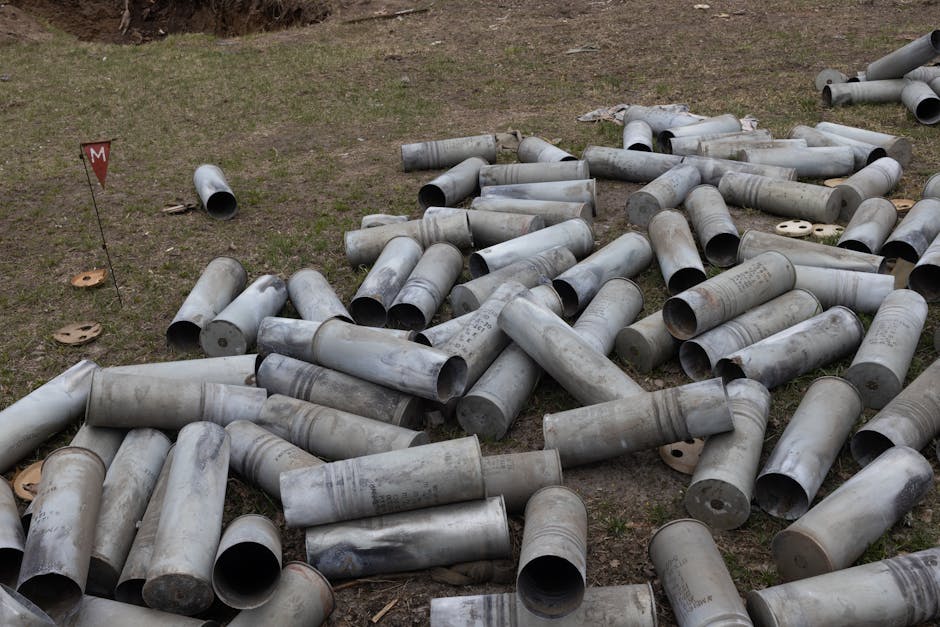
How Polygraph Testing Is Used in Military Settings
Polygraph testing, commonly known as lie detector testing, has been a subject of intrigue and debate for decades. In military settings, the stakes are often high, and the need for ensuring the integrity and reliability of personnel is paramount. This blog post aims to delve into how polygraph testing is applied in military environments. We will explore its methodology, effectiveness, criticisms, and the potential for future adaptation.
Understanding Polygraph Testing
Before we dive into its application in military settings, it’s essential to understand what polygraph testing entails. A polygraph test measures physiological responses such as heart rate, blood pressure, respiration, and skin conductivity while the subject answers a series of questions. The underlying principle is that deceptive answers will produce physiological responses that differ from those associated with truthful answers.
The Science Behind Polygraph Testing
Polygraph tests rely on the assumption that physiological responses can indicate deception. However, the scientific community remains divided on their reliability. Studies suggest accuracy rates between 70% to 90%, but these figures can vary based on the examiner’s skill and the test’s context. Critics argue that physiological responses can be triggered by anxiety, fear, or confusion, which do not necessarily equate to lying.
Polygraph Testing in Military Applications
Within military settings, polygraph tests are employed primarily for two purposes: security clearance and counterintelligence. Understanding these applications helps shed light on their significance and the controversies surrounding their use.
Security Clearance
The military often requires personnel to undergo polygraph tests to obtain or maintain security clearance. This is particularly relevant for positions that involve access to classified information. The polygraph aims to assess the trustworthiness of individuals by evaluating their past behavior and potential vulnerabilities.
Counterintelligence
In counterintelligence operations, polygraph testing serves as a tool to detect espionage activities and identify potential insider threats. By screening individuals with access to sensitive information, the military aims to prevent leaks and breaches that could jeopardize national security.
The Effectiveness and Limitations of Polygraph Testing
While polygraph tests are a valuable tool in the military arsenal, they are not without limitations. Understanding these limitations is crucial for evaluating their overall effectiveness.
Effectiveness in Screening Processes
Studies have shown that polygraph testing can be an effective screening tool when used alongside other investigative techniques. It can act as a deterrent for individuals considering deceitful behavior and provide valuable leads for further investigation. However, relying solely on polygraph results for decision-making can be problematic due to the potential for false positives and negatives.
Criticism and Ethical Concerns
Critics argue that polygraph tests can infringe on privacy rights and lead to undue stress for honest individuals. There is also the risk of skilled individuals manipulating their physiological responses to produce false results. Ethical concerns arise when tests are used coercively or as the sole basis for punitive actions.
Polygraph Testing in Practice: Case Studies and Examples
To illustrate the application and impact of polygraph testing in military settings, let’s explore some notable case studies and examples.
The Aldrich Ames Case
Aldrich Ames, a former CIA officer turned Soviet spy, managed to evade detection for years. Despite undergoing polygraph tests, Ames successfully manipulated the results, highlighting the challenges of relying solely on polygraphs for counterintelligence. His case underscores the need for comprehensive investigative approaches.
Operation Call From the Deep
In a military operation dubbed “Call From the Deep,” polygraph testing was instrumental in uncovering a network of insider threats within the Navy. The operation led to the identification and prosecution of several individuals engaged in espionage activities. This example showcases the potential effectiveness of polygraph tests when integrated into broader intelligence efforts.
Tips for Navigating Polygraph Testing in Military Settings
For individuals undergoing polygraph testing in military contexts, preparation and understanding can help mitigate stress and improve outcomes.
Preparation Tips
1. Familiarize Yourself: Understand the testing process and what to expect. Knowing the types of questions and the physiological measurements can help reduce anxiety.
2. Stay Calm: Maintain a calm and composed demeanor. Practice relaxation techniques such as deep breathing to manage stress during the test.
3. Be Honest: Ensure your responses are truthful. Consistency and transparency can help mitigate the risk of false positives.
Post-Test Considerations
1. Review Results: If possible, request a review of your polygraph results. Understanding the outcome can provide clarity and address any concerns.
2. Seek Support: If the test outcome is unfavorable, consider seeking legal or professional support to address any potential repercussions.
The Future of Polygraph Testing in Military Settings
As technology advances, the role of polygraph testing in military environments may evolve. Emerging technologies such as artificial intelligence and machine learning offer the potential for enhanced accuracy and reliability in detecting deception. Additionally, the integration of polygraph testing with other investigative tools could create a more robust approach to securing sensitive information.
Innovations on the Horizon
1. AI-Enhanced Analysis: Machine learning algorithms could analyze polygraph data more efficiently, reducing human error and bias.
2. Multi-Modal Approaches: Combining polygraph testing with other analytical methods such as behavioral analysis and digital forensics could provide a more comprehensive assessment.
Conclusion
Polygraph testing remains a controversial yet valuable tool in military settings. While it offers significant benefits in security clearance and counterintelligence efforts, its limitations and ethical concerns cannot be overlooked. The future of polygraph testing will likely see technological advancements that enhance its accuracy and integration with other investigative methods. Ultimately, the key lies in using polygraph testing judiciously, as part of a broader strategy to safeguard national security.
